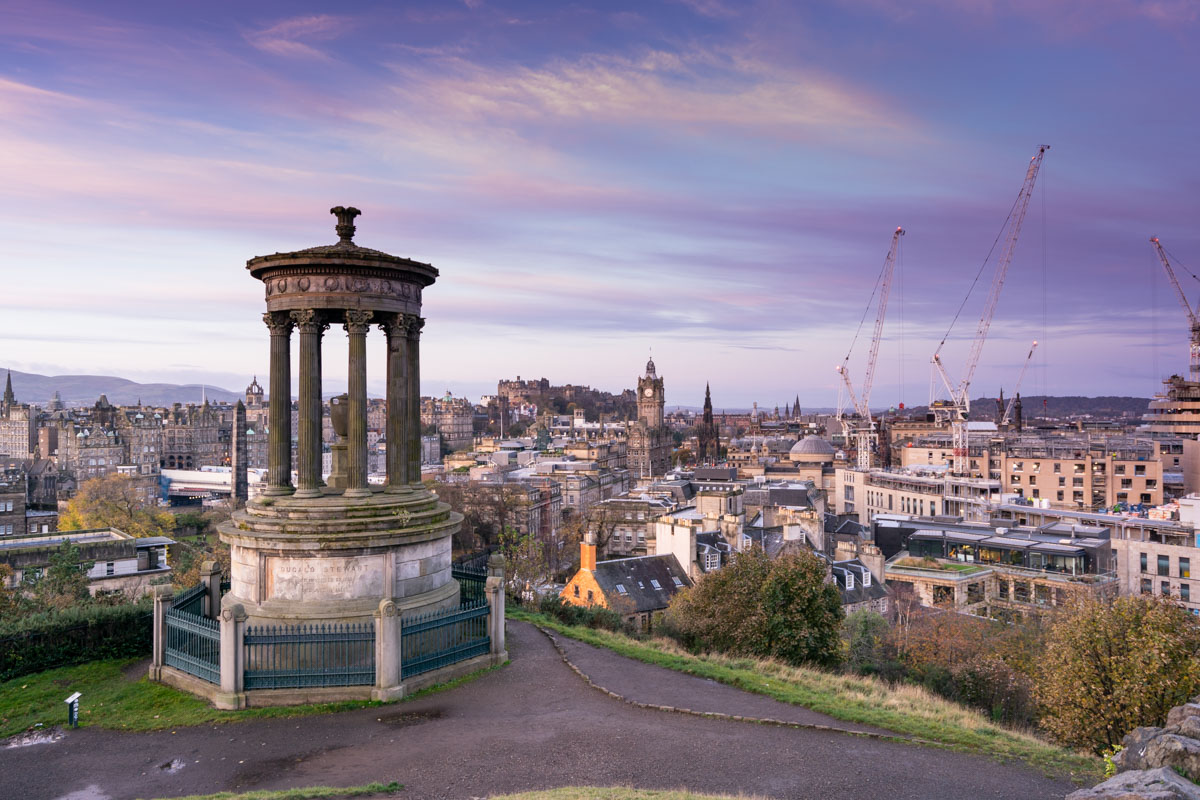For these glorious weeks of the Festival, Edinburgh is full of talented performers and admiring crowds.
But outside the golden mile, there are beginning-of-term worries over our education system and anxiety over whether the race riots in England will spill over the border.

Happily, we’ve had no racial trouble here in Scotland, so far, but the First Minister John Swinney has been touring mosques, and holding meetings with ethnic leaders, to offer reassurance that the government is on the alert. It helps perhaps that only eight per cent of Scotland’s population is non-white, compared with 18 per cent in England and Wales and we do not have a problem with immigration. In fact, we need more people.
We also don’t have the far-right keyboard warriors who lurk in English cyberspace, encouraging their foot soldiers to attack mosques and fight with the police. Of course, we have our own distractions, sectarianism and antisemitism, but somehow they don’t count as racial violence on this occasion. The police are confident enough that we will escape trouble here to allow us to send 120 offices to Northern Ireland to help control any violence there in the next week.
On Tuesday morning at 8am, some 145,000 school pupils opened their letters or emails from the Scottish Qualifications Authority giving their exam results. For most, it was good reading – 75 per cent passed (2 points down on last year). But in the Higher exams, there were disturbing signs of weakness in the education system. There was a big disparity between the performance of pupils from prosperous areas and those in deprived areas – an “attainment gap” of 17 per cent, which has remained much the same for years, despite the Scottish government making it one of its top priorities to close it. Some of them however opened the emails to find no results at all, but that is another matter.
There was also a trend away from “difficult” subjects. The number of pupils studying biology, physics, chemistry and maths dropped by around two per cent and in modern languages, there were huge drops, in French (32 per cent) and German (30 per cent). Spanish managed to buck the trend with only a small drop in numbers. The more popular subjects included modern studies, history, geography, business studies and physical education.
All this comes as the education system is in a sea of uncertainty. Funding is the biggest problem but with local councils in charge of schools, it’s difficult to disentangle the figures. We know that the local council budget in Scotland is £14 billion this year and that the councils say it’s £1 billion short of what they need to maintain services. We know too that education is the second biggest category of local council expenditure.
Another problem is the curriculum, now about to go through yet another change. There’s the issue of the attainment gap – £200 million is being given to addressing that, through extra support for schools in deprived areas. The exam body the SQA is being restructured. And there are huge rises in the numbers of pupils needing extra support (up to a third). There are also alarming rises in absenteeism and in disruptive and violent behaviour. Quite a challenge for the education secretary Jenny Gilruth, a teacher herself, who is watching pupils return to school over the next two weeks.

Getting back to the various festivals – the official Festival, the Fringe, the Book Festival, the Art Festival, the TV Festival and the Military Tattoo – they are all facing the same funding shortfalls as the education system. This week the culture secretary, Angus Robertson. tried to calm the growing chorus of demands by announcing £100 million over the next four years for “partnerships” with arts organisations. As with so many of these announcements, they are tokenistic gestures, showing the government is listening, but not doing much else.
With the Olympics in Paris coming to a grand finale this weekend, Scottish sport is counting up the medals and measuring our contribution to the British team. There were 34 Scots in the 169-strong GB Team. At the time of writing, Britain had won 50 medals. Scottish athletes accounted for 10 of them. We seemed to be good at coming second, Doug Scott in the swimming and Josh Kerr in the running. We’re all waiting to see what Laura Muir does in the 1500m on Saturday evening.
Finally, to the ancient “sport” of grouse shooting. The season starts on Monday, the “glorious twelfth”, when Scottish landowners invite their friends, or more likely paying guests, to spend a few days out on the purple heather moors shooting these subtly-coloured birds. But this year will be different. A licensing system is being introduced under which landowners will have to abide by certain rules on moor burning, pest control and preventing wildlife crime. In any case, it’s not going to be a great season because of wet and cold condition in the spring and the spread of ticks – both attributed to our changing climate.
As a young student I spent a couple of summers being paid to walk in lines across the hills waving flags to chase the grouse towards the gun-butts. In those happy-go-lucky days, we thought the natural world would keep giving for ever. In the last 50 years, we have realised we were wrong.





